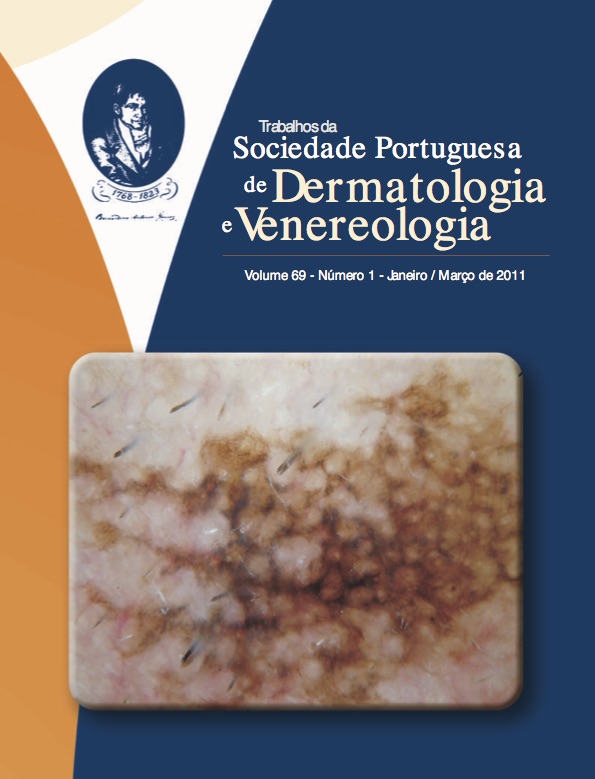OFF-LABEL USE OF BIOLOGIC AGENTS IN DERMATOLGY – 5-YEAR CLINICAL EXPERIENCE
Abstract
Introduction: In recent years, the development of numerous biologic agents extended the therapeutic armamentarium available to dermatologists. Although they are currently approved only for psoriasis, experience is being accumulated with its use in the treatment of different inflammatory skin diseases.
Methods: This was a retrospective study of all patients treated in our department with biologic agents for skin disease other than psoriasis. We analyzed the clinical data, previous and concomitant treatments, efficacy and safety profile of these agents in this setting.
Results: 15 patients were included with 7 different skin diseases resistant to conventional therapies. Etanercept was used in 4 cases: 3 patients with scleroderma (2 patients developed major side effects and had to interrupt treatment, while the third patient had a good response) and one patient with elastolytic granuloma. Four patients were treated successfully with infliximab (3 cases of Behçet’s disease and 1 case of pytiriasis rubra pilaris). Adalimumab was used to treat a patient with subcorneal pustular dermatosis with excellent results. Efalizumab was ineffective in 2 cases of atopic dermatitis. Rituximab was used in 5 patients: 3 cases of pemphigus (with complete clinical improvement) and 2 patients with atopic dermatitis (1 patient had a good response but had to interrupt treatment because she become pregnant and in the other patient there wasn’t any clinical improvement).
Conclusion: Biologic immunomodulators have demonstrated efficacy in the treatment of several dermatologic diseases; however, most of the available information are individual case reports or small case series. Despite our limited experience in this setting, these results seem promising in the treatment of some inflammatory skin diseases resistant to conventional therapies.
Downloads
All articles in this journal are Open Access under the Creative Commons Attribution-NonCommercial 4.0 International License (CC BY-NC 4.0).








